This article was co-authored by wikiHow staff writer, Ali Garbacz. Our trained team of editors and researchers validate articles for accuracy and comprehensiveness.
wikiHow’s Content Management Team carefully monitors the work from our editorial staff to ensure that each article meets our high quality standards.
There are 14 references cited in this article, which can be found at the bottom of the page.
This article has been viewed 739,374 times.
Learn more...
Falling in love with a fictional character is nothing out of the ordinary, and many people have found themselves emotionally attached to a character in a book, movie, TV show, or video game. Romance with a fictional character can also be a good opportunity to find an outlet for your creativity and learn more about yourself. That being said, you do want to be careful that these romantic feelings don’t prevent you from living your life or having real romantic relationships. Keep reading to learn how to cope with all of these emotions and how to make sure your favorite fictional character stays in their fantasy world.
Things You Should Know
- Share what you’re feeling for this fictional character by talking to friends or other fans, or express these feelings through writing fan fiction or creating fan art.
- If you want to fall out of love, remind yourself that this character is not real and make an effort to pinpoint their less appealing qualities to help with the process.
- Cut yourself from the source and avoid consuming any works that involve this character if you notice it affecting your real life.
Steps
Sharing Your Love with Others
-
1Know you are not alone. You’re not the only person out there who’s attracted to a fictional character. Chances are, you aren’t even the only person attracted to that particular character. It’s a perfectly normal thing to experience. If you're wondering why you might have fallen in love or how it's possible, there are several explanations:
- Some people fall in love with fictional characters because they know this person will always be there for them, they don’t have to deal with the possible messiness of a real relationship, and the character might seem super realistic.[1]
- Fictional characters are also written specifically to appeal to consumers. The author or creator purposefully put together a person’s best qualities and put them into their hero or protagonist. So it makes sense that you’d fall in love with them.[2]
- Even without falling in love, many people can take emotional and verbal cues from characters they see portrayed in fiction. Romantic feelings are just one way fictional characters can affect your real life.[3]
-
2Talk about it with your friends. Chances are you aren’t the only one in your circle of friends to follow a certain type of fiction. Even if they’re not exactly interested in the exact book you’re reading or show you’re watching, they may be able to understand some of the feelings you have.Advertisement
-
3Allow yourself to fantasize about your fictional love. Fantasy—creating a fictitious world around your romance—is a normal reaction to love that has its limits. In this case, the limit is that the object of your affection does not exist. Your fantasy can take any kind of form. You may picture a physical relationship, or maybe imagine getting married and living your life together.[4]
- A more active imagination might even consider how the relationship would end, including divorce, arguments, or even death. All things are possible with your imagination.
-
4Write fan fiction. One way to express your love for a fictional character is to explore your feelings in writing. Let your imagination run wild. If you’re in love with this character, think about what it is they do that attracts you and depict them doing more of it. Or include yourself and create a world where the two of you can be together.[5]
- If you’re more of a visual person, try sketching or drawing some fan art of your fictional character instead. Visual work can be just as imaginative as writing.
-
5Share your work with others. Post your story to a website that publishes fan fiction. You can find sites that cater to general audiences, or that serve fans of a particular book or show. This also gives you an opportunity to provide feedback about other people’s stories.[6]
- Just remember to avoid posting personal details like your real name or address if you’re a character in your stories.
Breaking the Spell
-
1Figure out if this love is hurting your life. Daydreaming or fantasizing is fine, but your fantasy should not take over your life. If you find yourself wanting to get out of social situations or avoiding real relationships because of this fictional character, then it’s possible that this connection is turning into something a bit more unhealthy.[7]
-
2Remember that the character isn’t real. As lovable and realistic as they might feel, remind yourself that you fell for a character who doesn’t exist. Make sure that is clear in your mind. If you need to, remind yourself of this fact multiple times throughout the day.[8]
- Look for your character’s flaws or negative aspects. If they don’t have any, that itself is a flaw. No one is perfect, and you wouldn’t be okay with a real relationship where nothing was wrong with your partner.[9]
- Sometimes it helps to have other people say these things to you to make them more real. Discuss your desire to cut yourself off from this fictional world with your friends and have them remind you from time to time.
-
3Recognize stereotyping in the characters. Especially in visual fiction, many characters are portraying stereotypes of people. A good way to get over your character is to remember that they are just a representation of reality. Real people aren’t necessarily as perfect, romantic, witty, or uncomplicated as your fictional character.
-
4Cut yourself off from the fictional character. Don’t read books, watch shows or movies, or do anything involving that character. This also means avoiding websites that talk about this fictional world. This is good advice for ending relationships with real people too. If you want to stop thinking about and caring about someone, cut them out of your life. This will give you room to grow and start to live your life without them.[10]
Dealing with the Loss of a Character
-
1Remember that it’s okay to grieve. You have let this character become part of your life, especially if they have appeared in something you have read or watched for a long time. It’s natural to feel some sense of loss.[11]
- For teenagers and young adults who have not yet experienced death, fictional worlds can be a good entrance to thinking about and discussing the issue.[12]
-
2Vent your feelings. If your favorite character has been killed off or written out of the fictional world, you might feel a bit angry. Let others know about it and let those feelings out through a nice, long rant.
- Just be careful about spoilers when dealing with popular books, movies, or TV shows. If you’re posting on a public forum, keep your comments vague, saying “I can’t believe that happened” rather than “Why did they kill my favorite character.”[13]
-
3Find ways to remember your character. Reflect on what made them so important to the story, and what made you fall for them. Talk to friends or others about the character, why their potential death is so frustrating, and what you liked most about them.[14]
- Reread or rewatch the parts of the book or show where your fictional love appears. The great thing about fictional worlds like this is that you can always go back.
- Look for other ways to keep the character in front of you, whether that's by writing your own fan fiction, or drawing the character so you can see them again.
-
4Keep reading or watching. A good work of fiction will deal with what follows after a character’s death. Even after they’re gone, stick with the show or book so you can see the other characters’ reactions. This can help you accept what has happened.[15]
- Alternatively, take a break from the show or book. If you’re truly emotionally affected by what happened, take some time away from this fictional world to make sure it isn’t overly affecting your real life.
-
5Remember that all good things must come to an end. The difficult thing about fictional characters is that their story does end at some point. In the end, all of their actions are the result of someone else’s imagination. That means only that person has control over what happens. Even if your character didn’t die, the book or show will eventually end.[16]
Community Q&A
-
QuestionI sometimes dream up crossovers of multiple fandoms. Is this healthy?
 wikiHow Staff EditorThis answer was written by one of our trained team of researchers who validated it for accuracy and comprehensiveness.
wikiHow Staff EditorThis answer was written by one of our trained team of researchers who validated it for accuracy and comprehensiveness.
Staff Answer wikiHow Staff EditorStaff AnswerA lot of works of fiction written by fans involve multiple fictitious works and characters. It's not unhealthy at all to flex your creative muscles and come up with some new and interesting plots. Writing or creating fan art is a great way to channel this creative energy and share your ideas with others.
wikiHow Staff EditorStaff AnswerA lot of works of fiction written by fans involve multiple fictitious works and characters. It's not unhealthy at all to flex your creative muscles and come up with some new and interesting plots. Writing or creating fan art is a great way to channel this creative energy and share your ideas with others. -
QuestionIs it normal for me to cry over the character because he isnt real?
 wikiHow Staff EditorThis answer was written by one of our trained team of researchers who validated it for accuracy and comprehensiveness.
wikiHow Staff EditorThis answer was written by one of our trained team of researchers who validated it for accuracy and comprehensiveness.
Staff Answer wikiHow Staff EditorStaff AnswerIt's totally normal, don't worry! However, if you find these thoughts impacting your real life, such as affecting your work performance or social life, it might be time to step away from this character for a bit and focus on yourself.
wikiHow Staff EditorStaff AnswerIt's totally normal, don't worry! However, if you find these thoughts impacting your real life, such as affecting your work performance or social life, it might be time to step away from this character for a bit and focus on yourself. -
QuestionI have a crush on a character that isn´t meant to be attractive or desirable in any way (if anything, they're kind of meant to be a joke). Is it normal to crush on him?
 wikiHow Staff EditorThis answer was written by one of our trained team of researchers who validated it for accuracy and comprehensiveness.
wikiHow Staff EditorThis answer was written by one of our trained team of researchers who validated it for accuracy and comprehensiveness.
Staff Answer wikiHow Staff EditorStaff AnswerThere's no right or wrong answer when it comes to attraction and who you feel drawn to. Just because they may not be the main protagonist doesn't mean they can't appeal to someone and provide comfort for certain people.
wikiHow Staff EditorStaff AnswerThere's no right or wrong answer when it comes to attraction and who you feel drawn to. Just because they may not be the main protagonist doesn't mean they can't appeal to someone and provide comfort for certain people.
References
- ↑ https://thedebrief.org/the-rise-of-fictosexuality-why-people-are-falling-in-love-with-fictional-characters/
- ↑ https://www.motionpictures.org/2013/07/the-psychology-of-character-bonding-why-we-feel-a-real-connection-to-actors/
- ↑ https://www.psychologytoday.com/blog/the-mind-stage/201211/do-fictional-characters-affect-our-real-life
- ↑ https://www.psychologytoday.com/blog/get-some-headspace/201310/the-imaginary-lovers
- ↑ http://www.yalsa.ala.org/thehub/2014/10/03/getting-over-a-fictional-death/
- ↑ http://www.cosmopolitan.com/entertainment/books/a37440/tips-to-becoming-a-successful-fan-fiction-writer/
- ↑ http://www.scientificamerican.com/article/living-in-an-imaginary-world/
- ↑ https://www.psychologytoday.com/blog/the-mind-stage/201211/do-fictional-characters-affect-our-real-life
- ↑ https://www.psychologytoday.com/blog/in-the-name-love/201309/who-is-the-perfect-partner-0
- ↑ https://goodmenproject.com/featured-content/getting-over-a-breakup-101-8-lessons-in-coping-with-heartbreak-kt/
- ↑ http://time.com/3834589/grief-counselor-mourn-fictional-character-death/
- ↑ http://www.theguardian.com/childrens-books-site/2014/aug/18/death-important-young-adult-fiction-rupert-wallis
- ↑ http://gizmodo.com/5947047/how-to-stop-spoilers-from-ruining-tv-for-everybody
- ↑ http://www.yalsa.ala.org/thehub/2014/10/03/getting-over-a-fictional-death/
- ↑ http://time.com/3834589/grief-counselor-mourn-fictional-character-death/
- ↑ http://www.bbc.com/news/magazine-31534580
- ↑ https://www.frontiersin.org/articles/10.3389/fpsyg.2020.575427/full
About This Article
To cope with being in love with a fictional character, try to remember that lots of people develop crushes on fictional characters, and there's nothing wrong with it as long as it's not negatively affecting your life and real romantic relationships. If it is taking a toll on your personal life, remind yourself that the character isn't real, and try to cut yourself off from them by avoiding any shows, books, or movies they're in. Also, try to keep in mind that a fictional character will never be as interesting or complicated as a real person, so you probably wouldn't want to be with them anyway. To learn how to cope with the loss of a fictional character, scroll down!
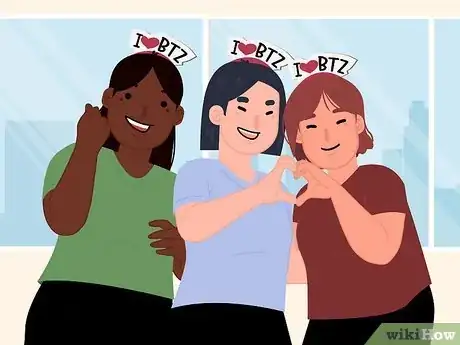
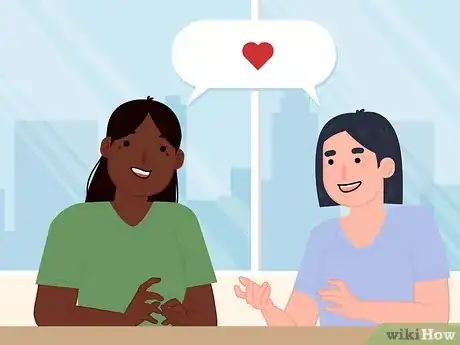



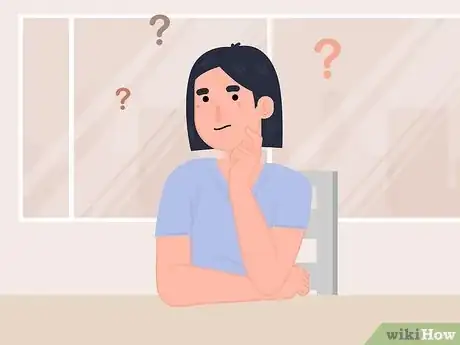
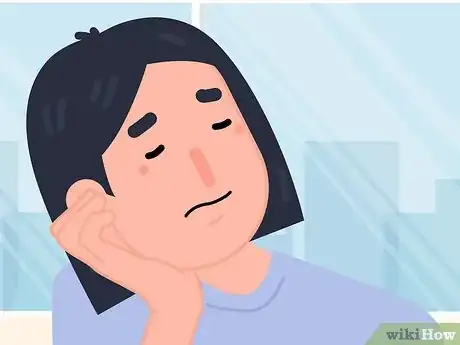
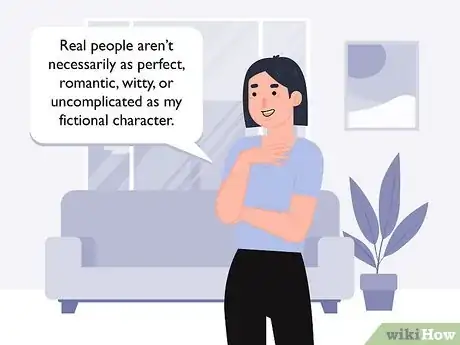
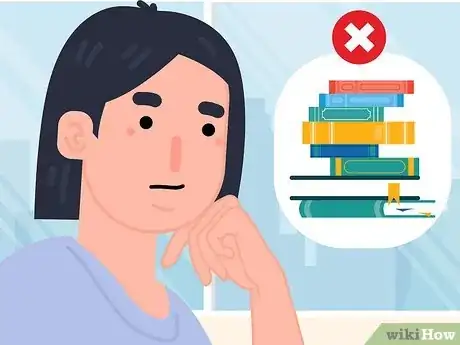



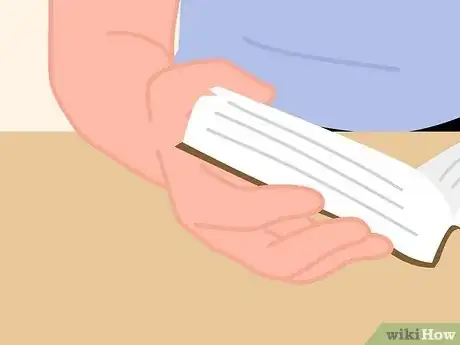
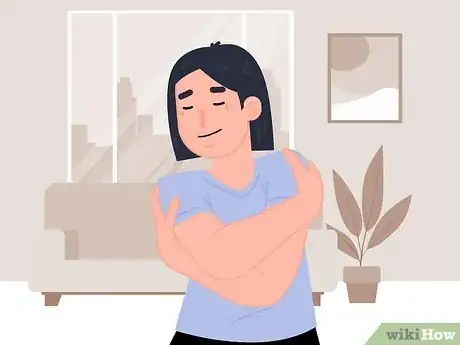

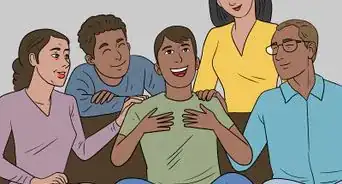
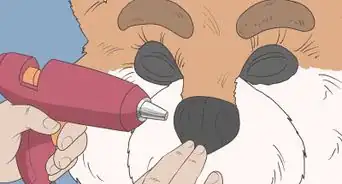
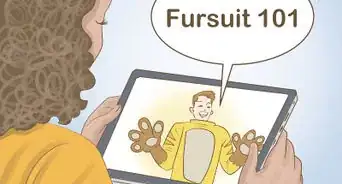
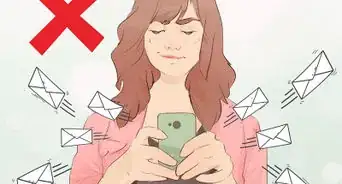
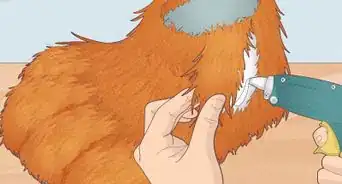
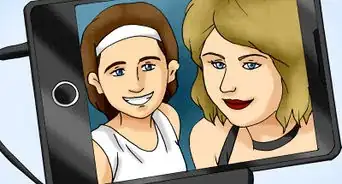

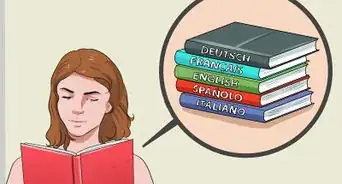
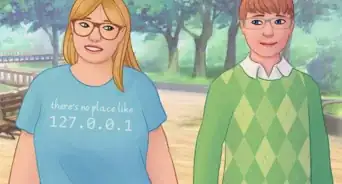


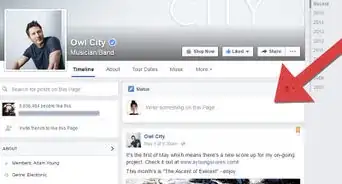









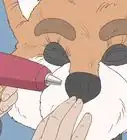
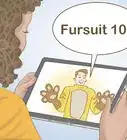



































wikiHow’s Content Management Team carefully monitors the work from our editorial staff to ensure that each article meets our high quality standards. This article has been viewed 739,374 times.